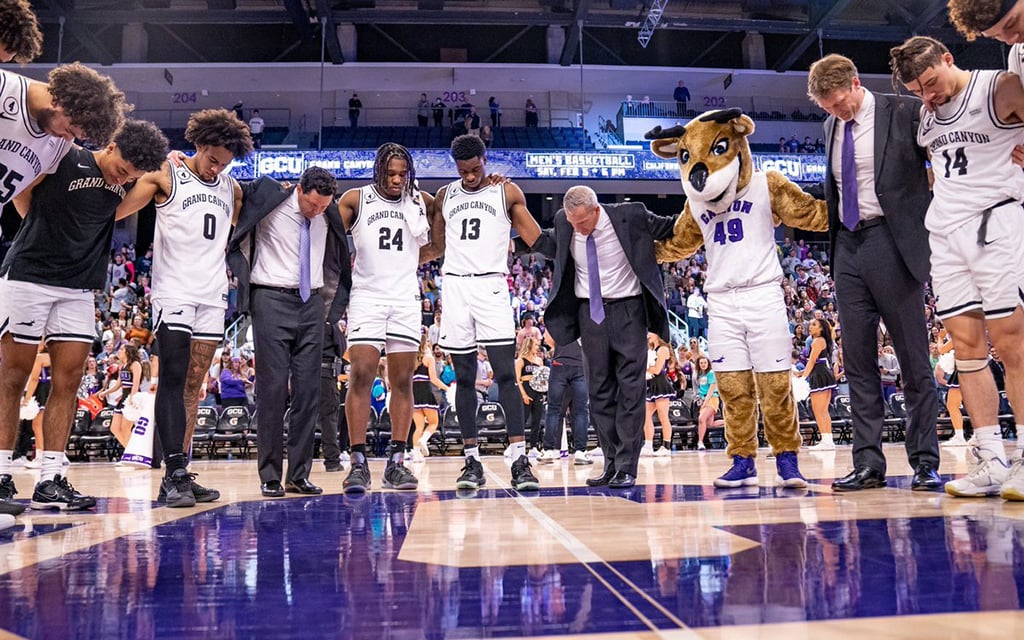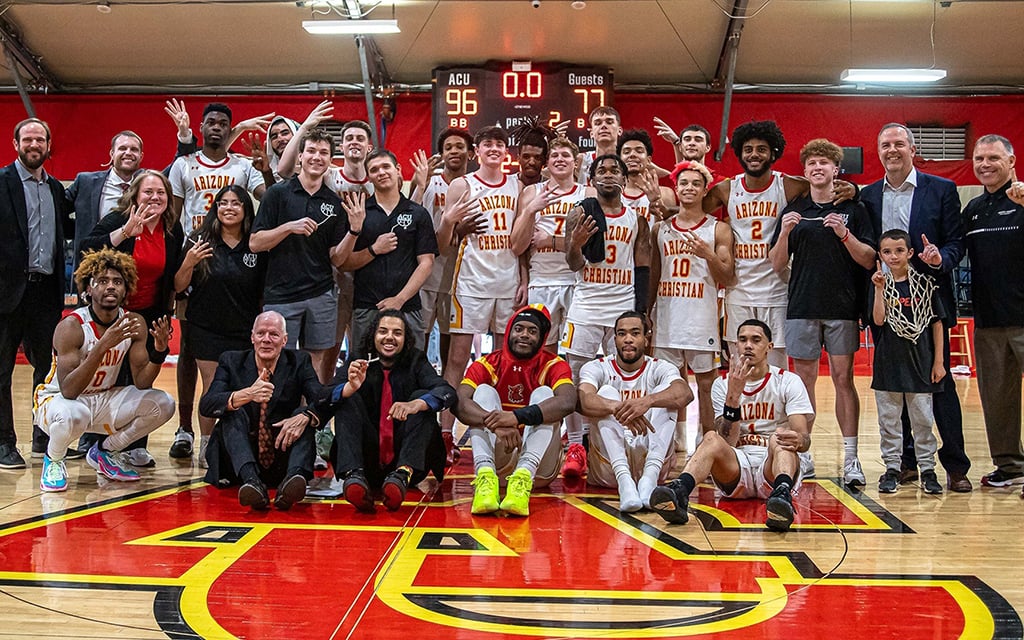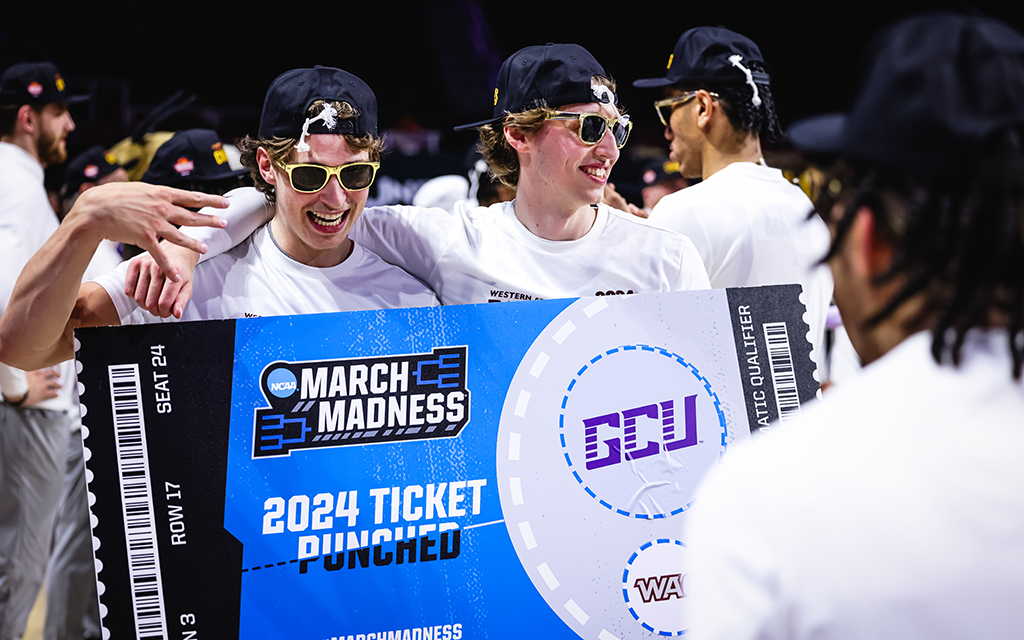Faith and family
For the Shaws, the marriage of sports and religion makes absolute sense.
The family consists of Casey, his wife Dana, the vice president of external affairs and government relations at GCU, and four children. Two of those children, brothers Isaiah and Caleb, play on the basketball team under their dad and head coach Bryce Drew, who is also Dana’s brother.
Both the Shaw and Drew families not only embrace Christianity but have members who lead men’s programs at Christian schools: Bryce Drew at GCU and Scott Drew at Baylor.
Both schools made the 2024 Men’s NCAA Tournament and each won a game in the first round. It was expected for Baylor, who won the title in 2021, but it was more surprising for GCU since it was the ‘Lopes’ first tournament win since the program jumped up to Division I in 2013.
The Drew brothers take a similar approach to how they coach by incorporating biblical principles. Casey Shaw has worked with his brother-in-law Bryce Drew for the last seven years at Vanderbilt and GCU, and he believes the philosophy helps develop a healthy program.
“It’s something we do here at GCU, I think you have to have culture,” Casey Shaw said. “In other words, basketball is bringing a lot of really good players together and then helping them play a role that means everybody sacrifices. …
“We preach that to guys. We stand on those principles of selflessness, teamwork, unity, togetherness, giving of yourself and sacrifice. When you get a group of guys together that will sacrifice and give for each other, good things happen. (Scott has) done that down there (at Baylor) and you see year after year after year.”
Paul Putz, the assistant director of the Faith and Sports Institute at Baylor’s Truett Seminary, echoes that sentiment from what he has seen from Scott Drew and Baylor since he has been in Waco, Texas.
“I think Scott Drew really focuses on what he calls a culture of JOY,” Putz said. “The JOY stands for Jesus, Others, Yourself. The idea is that as a team, Scott Drew wants to emphasize Jesus first, and for Christians, that’s really important. Christians would say that God should be the first priority in your life and because Baylor is a Christian school, and Scott Drew is a Christian, there’s freedom to do that.”







